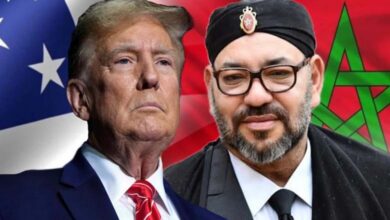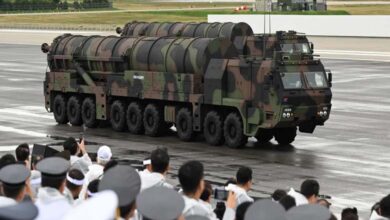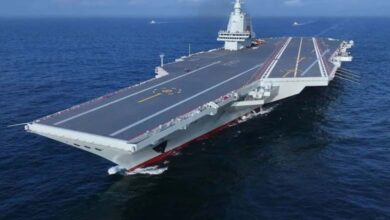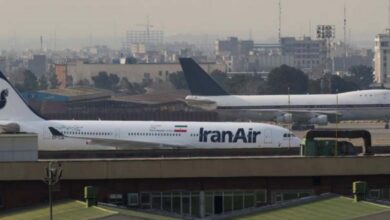Sovereignty dispute in Scarborough: a new diplomatic confrontation between the U.S. and China
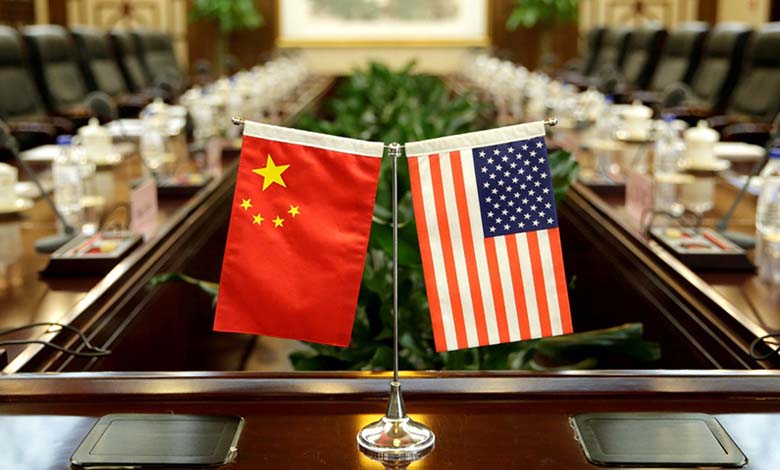
U.S. Secretary of State Marco Rubio declared that Washington stands firmly with the Philippines in the face of what he described as China’s “destabilizing plans” in the South China Sea.
In a statement issued Friday, Rubio asserted that “Beijing’s claim that Scarborough Shoal is a marine protected area is a coercive attempt to bolster its sweeping territorial and maritime claims at the expense of its neighbors,” adding that “Washington firmly rejects these actions.”
-
Facing China and U.S. Ambiguity.. Japan Rebuilds Its Military Power
-
The Technological Revolution and Irregular Warfare: Why is China Surpassing the U.S.?
Filipino fishermen fear that China’s plan to establish a protected area in the region will restrict their livelihood, given the constant monitoring by Chinese vessels.
Scarborough Shoal lies within the Philippines’ exclusive economic zone but has been under China’s de facto control since 2012.
Beijing claims most of the South China Sea — a vital waterway through which more than $3 trillion in annual trade flows — despite overlapping claims from the Philippines, Brunei, Malaysia, and Vietnam.
-
War, peace, and an unstoppable force… Xi’s messages at the military parade
-
After Hints of a Conspiracy… a Gesture of Goodwill from Trump to Putin and Xi
The significance of Scarborough
- Located 200 km off the Philippine coast, within Manila’s exclusive economic zone.
- Known by multiple names: “Huangyan” in China, “Panatag” or “Bajo de Masinloc” in the Philippines.
- Abundant in fishery resources, with a natural lagoon providing shelter for ships during storms.
- Strategically positioned in the heart of the South China Sea, near shipping lanes carrying over $3 trillion in trade annually.
- A recurrent flashpoint between Chinese and Philippine vessels, drawing heightened attention from the United States and other global powers.
-
By land, sea, and air: China unveils its latest weapons at military parade
-
Strategic Bombers: A US-Russia-China race on the front line
The dispute and the U.S. stance
The United States has long viewed the South China Sea as a strategic arena tied to international freedom of navigation and the security of its Asian allies.
Over the years, the U.S. Navy has carried out regular “freedom of navigation” operations near disputed islands and reefs, directly challenging China’s sweeping claims.
Washington has also bolstered its regional allies, particularly the Philippines, with whom it shares a mutual defense treaty.
-
Threat to the U.S. and East Asia: Discovery of a Ballistic Missile Base in North Korea
-
Trump-Putin Summit: Alaska Revives Its History and Seeks Strategic Prominence
Successive U.S. administrations have reaffirmed that any armed attack on Philippine forces in the South China Sea could trigger joint defense obligations.
In 2016, the Permanent Court of Arbitration in The Hague ruled against China’s expansive claims in the South China Sea, a decision invoked by Manila but rejected by Beijing, which has continued to assert control over Scarborough and its surrounding waters.


